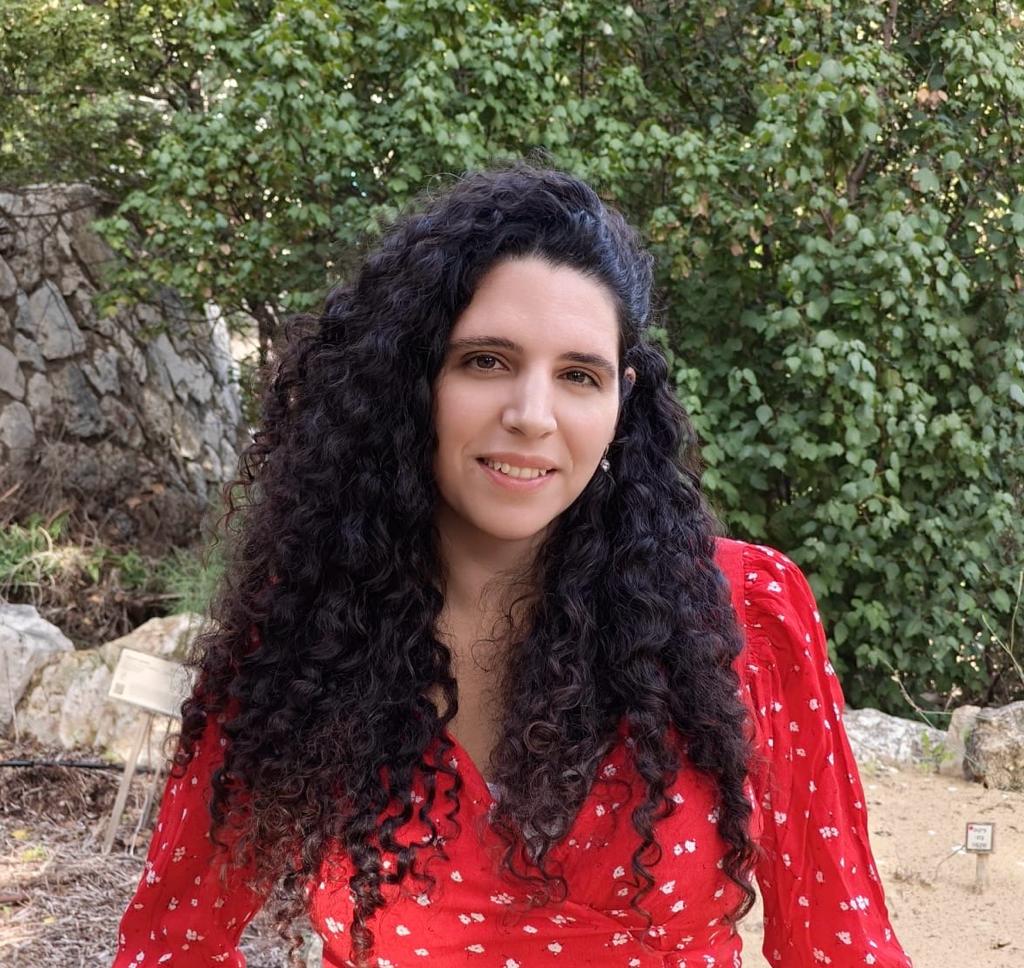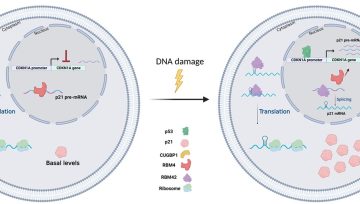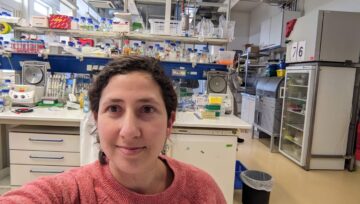The Faculty of Biology’s Committee for Graduate Studies chooses the most prominent scientific article every month from all the published scientific articles for that month. We are delighted to announce that Dr. Bella Ben Oz from Prof. Ayoub’s lab has won the November 2023 Paper of the Month award. Her paper has been accepted for publication in Nature Communications.
In honor of her win, we have requested that Bella provide us with some fascinating insights on the study, the path that led to the research, and a little about herself.
• Hi, could you introduce yourself in a few words?
My name is Bella Ben-Oz, married to Shlomi and the mother of Rafael and Adam. I have recently finished my PhD, after almost ten years in the faculty of biology, seven of them at the Ayoub lab.
• Could you tell us about your current article/research what was the main purpose of the research and what did you discover?
Our research focuses on RBM42 protein. When I just started my project almost nothing was known about RBM42. Our goal was to study the role of RBM42 in DNA damage response. In this study, we reveal a dual role of RBM42 in regulating the splicing and translation of CDKN1A\p21 and other several target genes. Collectively, our data favor a model where the same RNA processing factors are involved in regulating multiple post-transcriptional activities to ensure exquisite fine-tuning of gene expression.
• Can you elaborate on the importance of the discovery? How will it serve you and what directions does it take? What is the application of the discovery (domains, solutions)?
p53-mediated cell cycle arrest during DNA damage is dependent on the induction of p21 protein, encoded by the CDKN1A gene. p21 function is important to guarantee accurate repair of DNA lesions. Hence, fine-tuning of p21 levels is crucial to preserve genomic stability. The multilayered regulation of p21 levels during DNA damage is not fully understood. Our work revealed a yet unknown mechanism by which p21 protein levels are controlled during DNA damage. Moreover, RBM42 is over-expressed in many types of human cancer. Therefore understanding RBM42 biological function may help us understand its involvement in cancer development and suggest new potential therapeutic targets.
• When you are not “doing” science, what do you do?
Enjoying the time with my boys and family, reading and baking.
• what are your plans for the future of your career?
Combining my two passions: research and teaching
➡ A link to the full article: https://rdcu.be/drKUE
➡ A link to Prof. Ayoub’s lab site:https://ayoubn.net.technion.ac.il/
➡ A link to Prof. Ayoub Page: https://biology.technion.ac.il/en/member/ayoub/










